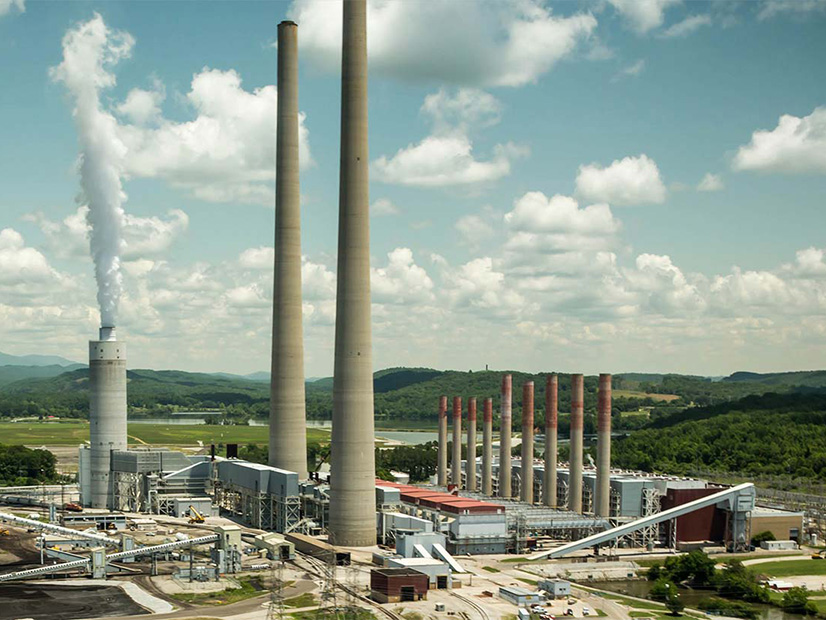Several nonprofits are calling on the Tennessee Valley Authority to make its integrated resource planning process more transparent as the federal utility charts its resource mix over the next 25 years.
Energy Alabama, Appalachian Voices, Southern Alliance for Clean Energy, Center for Biological Diversity, Vote Solar and Green Workers Alliance submitted a motion to intervene this week in TVA’s 2024 integrated resource plan and environmental impact statement. They pressed the TVA Board of Directors to direct TVA to hold public hearings, create a more open process and let stakeholders sound off on the resource planning study.
The groups said TVA’s IRP will “influence reliability, electricity bill affordability, air and water quality, and regional jobs over the next two to three decades.” They noted that unlike most utilities, TVA’s IRP isn’t regulated by a public service commission and impacted stakeholders aren’t permitted to participate in the process unless “hand-selected” by TVA to join its 24-member IRP working group. The nonprofits said it remains unclear how an interested party can approach TVA to express interest in serving on the working group. They also said it appears the IRP working group simply comments on plans already under development by TVA, with no indication the group offers any meaningful alternatives to generation plans.
“TVA’s IRP and [environmental impact statement] process is not transparent. There is no publicly available list of working group members. Agendas are not posted before meetings. There is no public comment opportunity at working group meetings, nor are these meetings open to the public. To the extent that information is made available to the public, such information consists of perfunctory summaries of decisions made, rather than the data and models that are used in the development of initial and final energy resource strategies and scenarios,” the nonprofits wrote in the motion.
TVA anticipates releasing its IRP sometime next year. It last conducted an IRP in 2019.
The federal utility issued a notice of intent for its 2024 IRP in mid-May, followed by a 45-day public comment period (PPLPWR-11-2023). The nonprofits criticized TVA for imposing multiple, overlapping comment periods on environmental impact statements for key projects that will factor into the IRP, including a guidance analysis for solar and battery additions, a study on the Kingston Fossil Plant retirement, a study to evaluate increasing pumped storage hydropower capacity and an evaluation of the planned, 900-MW, natural gas-fired Cheatham County Generation Site.
The groups also said it was inadequate for TVA to hold just two limited participation scoping meetings in late spring on the IRP where the public was permitted only to ask “clarifying questions.” They said TVA’s timeline doesn’t account for public comment on its resource strategies and scenario modeling, and that modeling already may have begun or will begin soon.
“TVA’s reluctance to adopt a public Integrated Resource Plan process is truly a shame,” Vote Solar Regulatory Director Jake Duncan said in a press release accompanying the motion. “Having worked in IRPs in other states, I’ve personally witnessed the transformative power of a public process, which not only enhances outcomes but also provides an opportunity for utilities to embrace clean energy and address energy justice concerns, benefiting everyone.”
“Advocates are asking for an open and transparent planning process, including bare-minimum standards for public input that are available in IRPs at similar-sized utilities,” Appalachian Voices’ Bri Knisley said. “The TVA board can and should call for a public hearing and allow input and analysis from any relevant outside experts who wish to provide input in the IRP.”
Gaby Sarri-Tobar, energy justice campaigner at the Center for Biological Diversity, said by “concealing” its long-term planning, TVA is failing its customers.
“As energy prices go up and extreme weather looms, there’s absolutely no excuse for TVA to keep people in the dark about plans that will affect their lives for decades. These folks are paying TVA’s bills, and they live with the health and safety costs of the fossil fuel status quo. It’s insulting to exclude them from the planning process,” Sarri-Tobar said.
TVA Maintains IRP Process is Transparent
TVA, however, insists its IRP procedure is already “fully transparent,” with stakeholder engagement a critical piece of the process.
Scott Fiedler, of TVA’s media relations team, said the TVA IRP working group is a “diverse” stakeholder group and that TVA updates the public on its IRP process through meetings of the TVA board and its Regional Energy Resource Council, which is composed of regional governmental representatives, academics and consumer advocates.
Fiedler noted that council meetings are open to the public, with the next occurring Nov. 7 in Tupelo, Miss. He said that will be followed by a TVA board listening session and TVA board meeting — also in Tupelo — Nov. 8 and Nov. 9, respectively. Fiedler also said TVA is planning to host another public webinar on the IRP in December.
Finally, Fiedler said TVA will again collect public opinions in spring when it releases its draft IRP and environmental impact statement. He said TVA will plan “a number of public meetings and other engagements to share those drafts and have opportunities for the public to provide feedback.”
“Bottom line: TVA is fully transparent, and we encourage the public to get involved in how their energy is generated. Together, we can build an energy system that is low cost, reliable, resilient and sustainable that will continue to drive jobs and investment into our region and power the new clean economy,” Fiedler said in an email to RTO Insider.




